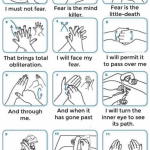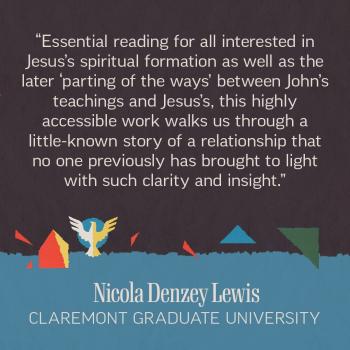The bookseller Christianbooks.com provides an opportunity for authors to share additional information about their books featured on the site. Here’s what I wrote:
Tell us a little about yourself. I am the Clarence L. Goodwin Chair in New Testament Language and Literature at Butler University in Indianapolis, Indiana.
What was your motivation behind this project? The idea for the book was prompted by a student who approached me about writing an honors thesis, who was interested in exploring the relationship between her Christian faith and her feminist convictions. As I thought about what kind of research I could supervise that would connect with my own areas of expertise, the place of women in early Christianity was an obvious direction to go. Yet whether and what Jesus taught women has been treated quite a bit, and so I suggested it might be interesting to flip that around and ask what women taught Jesus, what he learned from them. Initially I was thinking of his mother, of course, and the other example that is usually thought of in connection with this topic, the Syrophoenician woman who offered a clever retort to what Jesus said to her (Mark 7:27-28). As I thought about it, I realized that the same thing could be said about other stories in the Gospels in which Jesus talks with women. When the disciples come back to him at the well in Samaria and are surprised to find him having a conversation with a woman, it tells us this was not his usual practice (John 4:27). The encounter changed and influenced him. Likewise when Mary of Bethany sits at Jesus’ feet and her sister (presumably among others) objected, we are not told that Jesus reminded Martha of his teaching about women learning and asked her why she wasn’t following it. Rather, he says that Mary has chosen the better portion, and he won’t take it away from her (Luke 10:42). There too it seems to be Mary’s initiative, and even if it was in response to something Mary perceived about Jesus and his outlook, it also seems clear that it influenced Jesus. Time and again, when I asked about Jesus learning from his encounters, the text provided answers, answers that its authors in no way emphasized or showed particular interest in, but for that very reason strike me as likely to reflect something historical.
What do you hope folks will gain from this project? I hope the book will contribute to discussions of the role of women in ministry and the life of the Christian church. I also hope it will contribute to challenging a tendency many Christians have of affirming the humanity of Jesus in theory, but denying it in practice, even contradicting things the Bible explicitly says in the process. For some, exploring the human life and experience of Jesus seems threatening. But both the Bible and the creeds affirm this, and whatever else one might want to say that goes beyond this, it should not involve denying that Jesus participated in the realities of human life in his time and setting in history.
How were you personally impacted by working on this project? This book turned out to be much longer than I anticipated, and included a chapter I didn’t expect to be able to write because I didn’t think there was enough to go on. I found new possible solutions to puzzles that have frustrated commentators for literally thousands of years. The stories of the women Jesus met taught me, challenged me, and changed me in ways that surprised me and made even extremely familiar stories about Jesus come alive in ways I never anticipated. I am eager to share this experience with readers of the book. I am persuaded that we have missed a lot that is there in the Gospels because we have not asked about what Jesus learned and who he learned from. Even those of us who take Jesus’ humanity fully seriously have neglected this.
Who are your influences, sources of inspiration or favorite authors / artists? I did my doctoral work with James D. G. Dunn and he remains a major influence. Elizabeth Schussler Fiorenza’s work on what it means to engage in biblical study with feminist perspectives and questions in mind remains of crucial importance. Authors like Helen Bond and Amy-Jill Levine provided such helpful perspectives on the historical Jesus, and Adele Reinhartz and April DeConick both for their scholarly work and for their kind endorsements of my book.
Anything else you’d like readers / listeners to know: My Sunday school class at Crooked Creek Baptist Church in Indianapolis also provided a wonderful context in which to share and receive feedback on both the broad ideas and possibilities I was considering when writing the book, and even full drafts of chapters. Their input was extremely valuable on this project as well as in general. It is great to have a community in which it isn’t necessary for me to keep my academic research and my own Christian faith compartmentalized. Even for those of us who research the Bible, we often explore things in depth and detail that most churchgoers aren’t interested in!













